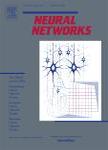版权所有:内蒙古大学图书馆 技术提供:维普资讯• 智图
内蒙古自治区呼和浩特市赛罕区大学西街235号 邮编: 010021

作者机构:Department of Computer Science and Information Engineering National Taiwan University of Science and Technology Taipei106335 Taiwan Research Center for Information Technology Innovation Academia Sinica Taipei115201 Taiwan Department of Mathematics Indian Institute of Technology Indore Simrol453552 India
出 版 物:《Neural Networks》 (Neural Netw.)
年 卷 期:2023年第161卷第1期
页 面:83-92页
核心收录:
学科分类:0710[理学-生物学] 1002[医学-临床医学] 0835[工学-软件工程] 0836[工学-生物工程] 0812[工学-计算机科学与技术(可授工学、理学学位)] 10[医学]
基 金:This work was supported in part by the Center of Cyber-Physical System Innovation and the Center of Intelligent Robots Taiwan from The Featured Areas Research Center Program within the Framework of the Higher Education Sprout Project by the Ministry of Education (MOE) in Taiwan in part by the National Science and Technology Council of Taiwan under Grant NSTC111-2221-E-011-128-MY3 Grant NSTC111-2622-8-011-012-TE2 Grant NSTC110-2221-E-001-009-MY2 Grant NSTC111-2221-E-001-002 and in part by the Wang Jhan-Yang Charitable Trust Fund Taiwan under Contract WJY 2022-HR-02
摘 要:Existing deep learning based face anti-spoofing (FAS) or deepfake detection approaches usually rely on large-scale datasets and powerful networks with significant amount of parameters to achieve satisfactory performance. However, these make them resource-heavy and unsuitable for handheld devices. Moreover, they are limited by the types of spoof in the dataset they train on and require considerable training time. To produce a robust FAS model, they need large datasets covering the widest variety of predefined presentation attacks possible. Testing on new or unseen attacks or environments generally results in poor performance. Ideally, the FAS model should learn discriminative features that can generalize well even on unseen spoof types. In this paper, we propose a fast learning approach called Domain Effective Fast Adaptive nEt-worK (DEFAEK), a face anti-spoofing approach based on the optimization-based meta-learning paradigm that effectively and quickly adapts to new tasks. DEFAEK treats differences in an environment as domains and simulates multiple domain shifts during training. To further improve the effectiveness and efficiency of meta-learning, we adopt the metric learning in the inner loop update with careful sample selection. With extensive experiments on the challenging CelebA-Spoof and FaceForensics++ datasets, the evaluation results show that DEFAEK can learn cues independent of the environment with good generalization capability. In addition, the resulting model is lightweight following the design principle of modern lightweight network architecture and still generalizes well on unseen classes. In addition, we also demonstrate our model s capabilities by comparing the numbers of parameters, FLOPS, and model performance with other state-of-the-art methods. © 2023 Elsevier Ltd